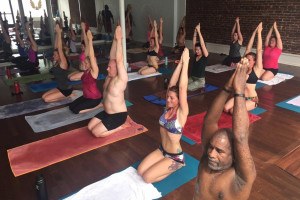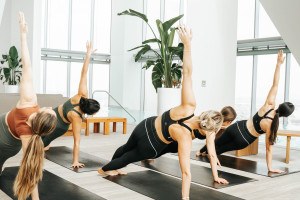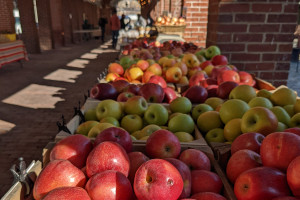Philly Native and FBF Body Founder Zakia Blain on What It’s Like Being in Biz for 10 Years
Blain shares the journey of her body-positive athleisure and shapewear brand. Plus, info on a special event she's hosting next weekend.
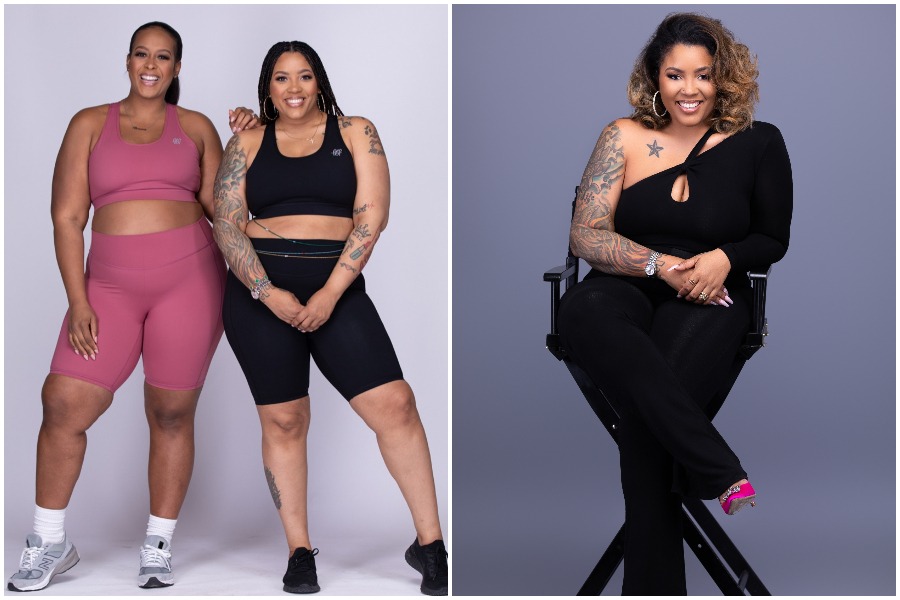
FBF Body, founded by Philly native Zakia Blain (right), creates athleisure and shapewear for women of all sizes. / Photographs courtesy of FBF Body.
Ten years ago, Chester native and current Delco resident Zakia Blain launched FBF (now FBF Body), a clothing and lifestyle brand carrying athleisure — like high-waisted leggings, t-shirts, sports bras — and shapewear for women sizes small to 5X. What began as a small business built from the ground up by Blain — a former teacher in the Philadelphia School District — has become a multi-million dollar brand empowering women to live their best, most healthy lives.
Next weekend, FBF Body is celebrating its 10th anniversary with an event series called Fit Girl Fresh at W Philadelphia. The weekend kicks off with a cocktail party on Friday, August 12th. The next day, attendees can expect fitness classes; panel discussions on financial health, work-life balance, relationships, and entrepreneurship; and a soiree featuring a sit-down dinner, a keynote speaker, and time for networking. The programming wraps up on Sunday, August 14th with a fun farewell pool party at the hotel’s Wet Deck. Fit Girl Fresh also includes a separate event on Saturday designated for girls ages 11 through 17 — a roundtable discussion about cultivating positive body image, self-esteem, and self-love. (Tickets to Fit Girl Fresh weekend can be purchased here.)
In light of FBF Body’s 10-year anniversary and its upcoming event, I chatted with Blain about her company’s decade-long journey — what’s changed, what’s stayed the same, and why the mission of FBF continues to thrive in Philly and beyond.
How did FBF Body come about?
I’ve always lived an active lifestyle, and I’ve always been what people would consider fat — I don’t shy away from the word “fat.” But about 12 years ago, I was diagnosed with a brain disorder called chiari malformation after experiencing severe headaches and vertigo. I was put on several medications to mitigate my symptoms, but my meds had more side effects than the actual brain disorder — I developed a stutter and experienced memory loss and cognition issues. At the time, I was teaching in the School District of Philadelphia, and being a teacher while living with these symptoms was hard. I ended up going on disability, and that’s when I turned to diet and exercise to hopefully get off my meds, which eventually I did. My experience prompted my passion to help people — especially Black individuals — be more proactive when it comes to their health. My brain disorder didn’t have anything to do with my weight; however, the foods I was eating were triggers for my headaches. Everything we put in our bodies affects our day-to-day living.
I remember I was out walking with a friend of mine around Cobbs Creek — it was the summer of 2012 and about 97 degrees. At one point she said, “You know what, fuck being fat” and I was like, “Yeah, fuck being fat. I’m going to put that on a t-shirt.” That moment led me to start an eight-week weight loss challenge that August, which I posted about on Instagram. Eight people participated — our most recent challenge had 1,000 participants — but that’s really how FBF was born.
You and your brand identify as body-positive. What does that mean to you?
Plus-sized women have been ignored by the fitness world for a long, long time. People are always telling fat people to exercise and lose weight, but then they don’t welcome us in the gym or make clothes — especially cute clothes! — for us in our sizes. But FBF came and showed that fat people do work out, and that fitness and health can’t be determined by what someone looks like on the outside. I think that’s why FBF has done so well these past 10 years — we built a community for people who have been ignored and/or criticized by the wellness industry.
For me, body positivity — what FBF is founded upon — is loving the body you have now, and maybe that also includes working on the body you want but not necessarily. We all struggle with insecurity based on what the beauty industry has told all of us. That’s why I always say that we don’t sell clothes, we sell confidence.
How does FBF’s original tagline, “Fuck Being Fat,” fit into this, then? Can’t that be taken as dismissive or fatphobic?
When FBF started 10 years ago, the body positivity movement was really just getting started. For FBF, that mantra of “fuck being fat” is more like saying, “You’re not going to shame me.” When you grow up being fat, “fat” is the first insult people use against you. And it’s weak — you want to be like, “Come up with something more creative than that!” Our original slogan was meant to help neutralize and reclaim the term “fat” by embracing it.
As we started to grow and scale the business — especially alongside the body positivity movement — we wanted to evolve as a lifestyle brand that encompasses the whole person, including mental and financial wellness. So, we rebranded as FBF Body around 2017.
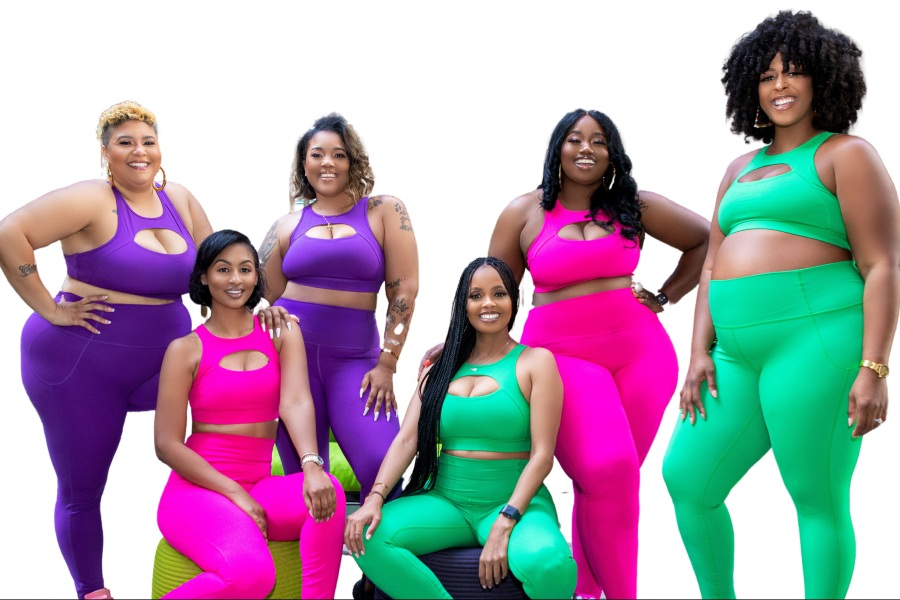
Photograph courtesy of FBF Body
What are the goals of next weekend’s Fit Girl Fresh event?
This will be our sixth year putting on Fit Girl Fresh, but this is the first year it’s spanning an entire weekend. The event is meant to celebrate community and bring people together first and foremost. I also want to make sure attendees leave with resources that they can start implementing into their lives that day, which is the purpose of Saturday afternoon’s four-part workshop segment about other aspects of wellness like finances and work-life balance.
That makes a lot of sense, given that there’s so much more emphasis on holistic wellness now.
If you’re not mentally well, it’s really hard to find motivation to exercise, let alone get out of bed in the morning. Those worlds have to come together in order to live a full life on all levels. It goes back to FBF’s understanding that physical health — what someone looks like on the outside — is not the whole picture of wellness.
The event is mainly for adult women, but you’ve also included a teen summit. Why’s that?
I know from personal experience and my time as a middle-school teacher that young women struggle with self-esteem, especially during their formative years. That’s why we host a segment for girls ages 11 through 17, in which we incorporate our “I Love Her” project focusing on body image and self-esteem and supplemented by insight from an adolescent therapist.
What’s the most important thing you’ve learned after 10 years in business?
Loving yourself is the hardest, but bravest, thing you can do in a world that constantly tells us all that we’re not good enough or we have to look or behave differently in order to be happy. In my experience, showing up for yourself and for your community in ways you can is a way to help you embrace the body you have. You only get one house for your soul; might as well appreciate it.
